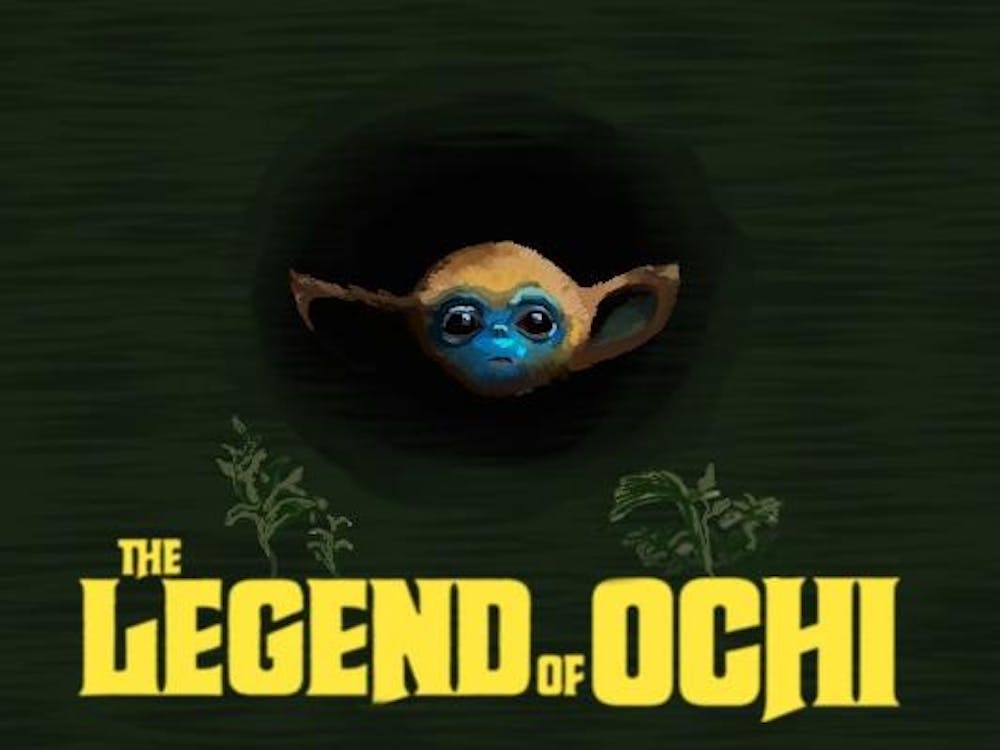Student bands are integral to the social culture of the University, playing a myriad of events for organizations, from WXTJ house shows and Greek life events to the University Planning Committee’s annual Battle of the Bands. Among these bands is Dropout, a student band that formed in January and plays a variety of music, from pop and country to retro and rock. The band finds itself in a space where its six musicians, all from different musical backgrounds and levels of band experiences, are able to express themselves creatively.
Three members of Dropout — Graham Hall, bassist and fourth-year College student, Sterling Peterson, keyboardist and third-year College student and Molly Simpson, lead singer and first-year College student — share their experience in Dropout and other student bands, offering advice for students looking to join or start bands at the University.
Peterson did most of the legwork to start Dropout by reaching out to fellow musicians he had played with before, including Hall. Simpson’s addition to the band was partly thanks to University Records, a Contracted Independent Organization whose goal is to connect musicians at the University. After Simpson dropped a message in the University Records GroupMe, Peterson noticed her interest and invited her to come play with the band. After a successful test run, the band invited Simpson to join officially as their lead singer.
According to Simpson, it can be hard to break into the band scene because the University has so many musicians. She played gigs with her brother in her hometown previously, but this is her first time being a member of a band. She encourages those interested in starting a band to be bold.
“Don’t be afraid to put yourself out there,” Simpson said. “It's just about putting yourself out there and taking the opportunities that you have … don't be scared and just try everything.”
Hall, Peterson and Simpson’s passion and dedication for music are clear in the work they put in to make Dropout a success, using their past music experience to help navigate the University’s music scene.
“I've seen a really direct correlation for every band I've been in, that the more you practice, the better you're going to be,” Hall said. “That way, when you get to your first gig and you have those hiccups and those bumps in the road, you know how to move through them.”
Even after a band’s creation, there can be hurdles to overcome. Peterson has also been in multiple bands during his time at the University and emphasizes the practice of patience when forming a band.
“If you want to start a band you really have to be patient and be tenacious with it, and be willing to fail a couple times,” Peterson said. “Eventually, if you're persistent, you will be able to find some musicians that are good, and you are going to be able to create a successful band.”
After the band was fully formed, they began workshopping their setlist. Bands often choose songs with a cohesive tone that works for them and their desired crowds. Dropout aims to be intentional in the music they perform, choosing setlists that are both unique and familiar to their audiences.
Hall, Peterson and Simpson all mentioned The Backseat Lovers as a band they enjoy playing at their gigs, along with songs such as, “Brazil” by Declan McKenna, “Take It Easy” by The Eagles and “Upside Down” by Jack Johnson.
“We try to pick songs that people maybe like but they don't know they like, or maybe they haven't heard in a while” Hall said.
In addition to a thoughtful setlist, bands can show their originality in the way they arrange covers and original music. Peterson commented that bands have the ability to mold songs to a desired style and that style can fluctuate between songs. This allows for greater variety during the set.
Multiple of Dropout’s members — including Simpson and Peterson — also write their own music, which they are workshopping together for the band. These songs are a blend of all genres, but are most closely inspired by classic rock. Creating original music takes time, and Peterson shares his advice about staying dedicated during the workshopping process.
“One of the most rewarding things about being in a band is creating your own music and being able to share that with the world and see people's reactions to it,” Peterson said. “The process you have to be very patient with because at first it's not necessarily very good, but over time, you can really craft something valuable.”
While the University’s music scene is vast, Dropout provides fresh, relevant advice to make it easier for students to navigate. To see the band in action, catch Dropout at their next show April 3 at Crozet where they hope to debut some of their new music as a band.







